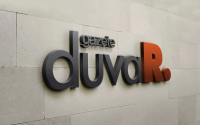3 February 2005Yahoo News
Energy giant Royal Dutch/Shell, hit by deep crises last year after overstating its proved energy reserves, reported a record net profit for 2004, when oil prices shot to record highs.
|
The company said that net profit had risen by 48 percent last year to 18.536 billion dollars (9.8128 billion pounds) from the equivalent figure in 2003.
Full-year pre-tax profit rose 49 percent to 32.78 billion dollars and fourth-quarter net income surged 133 percent to 4.48 billion dollars compared with the same period a year earlier.
Crude oil prices soared to a record high level of 55.67 dollars per barrel in New York trading last October.
Shell's results come just days after Exxon Mobil, the world's largest oil company, had reported its highest-ever quarterly profit of 8.42 billion dollars.
The Anglo-Dutch giant meanwhile said it would pay shareholders 10 billion dollars in dividends for last year and announced a share buy back programme.
Shell chief executive Jeroen van der Veer described 2004 as "a year of extremes, with the reserves re-categorisation on one hand and record net income and cash generation on the other".
He added: "We have taken the steps necessary to close out the reserves issue, made substantial improvements to our portfolio and are reshaping the organisation."
Shell is struggling to win back investors' trust after admitting last year it had overstated its proven reserves, and that senior executives were aware of problems long before they were made public.
In a sign that Shell's troubles had not been fully resolved however, the group said it had again been forced to reduce its oil and gas reserves, by a higher-than expected 1.4 billion barrels -- a announcement dealers said was behind a 1.72-percent fall in Shell's share price to 471.75 pence in early London trading.
Shell had said in October that the cut would be 900 million barrels.
"Net profit beat our and consensus targets and cashflow was strong as well, but reserve replacement looks disappointing," said one London-based dealer.
Shell said the oil and gas reserves accounting errors had cost the group 700 million dollars in earnings between 2000 to 2004, equal to 1.0 percent of the total earnings over the period, chief financial officer Peter Voser told reporters Thursday.
A series of cuts in 2004 saw the group's reserves fall by a fifth, equivalent to 4.47 billion barrels.
Shell said that its production in 2004 stood at 3.8 million barrels of oil equivalent per day, at the upper end of the group's guidance.
The production outlook for 2005 and 2006 remained at between 3.5 and 3.8 million barrels per day, it added.
In a bid to clean up its image and restore investor confidence, the world's third-biggest oil group announced plans last October to merge its Dutch and British holding companies.
Some investors had blamed the reserves crisis on what they saw as Shell's complicated structure.
Royal Dutch and Shell Transport shareholders were to vote on the merger plans at their upcoming annual general meetings.
Shell's plans are intended to end almost a century of tradition by moving to a more traditional single-board structure with one chairman and one chief executive, scrapping its current dual-board arrangements based in Britain and the Netherlands.
At present, Royal Dutch Petroleum holds 60 percent of the group and Shell Transport and Trading, the British arm, 40 percent.
US and British regulators meanwhile launched separate inquiries after Shell admitted the reserves miscalculation and fined the group 150 million dollars in total.
Three top Shell executives, including former chairman Philip Watts, were ousted. Watts was replaced by van der Veer, then president of Royal Dutch.







